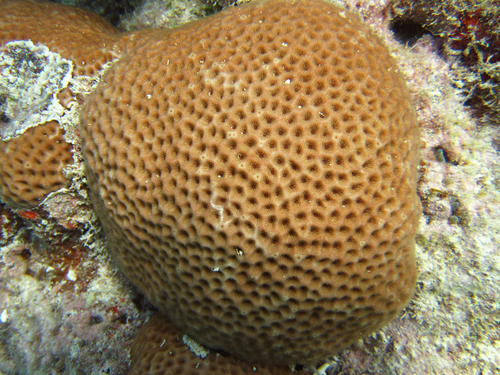Global warming and other human-caused factors continue to push coral reefs closer toward collapse. Hence, locating and preserving coral with the highest chance of surviving has become a key method to ensuring marine life and the ecosystem services they provide are preserved for future generations. There is currently a multinational collaborative effort underway known as the Super Reefs program that hopes to do just that. The initiative is led by marine scientists from the U.S based Woods Hole Oceanographic Institution (WHOI), Stanford University, and The Nature Conservancy (TNC), along with officials from the Belize government and other Belizean stakeholders like Reef Conservation International.
All corals can tolerate changes in water temperature to some degree — but some more than others such as the Massive Starlet Coral (pictured above). And it’s this, something begun by nature, that the project seeks to take advantage of. Mother Nature has already planted heat tolerance in certain corals, and the idea is to exploit that to not only protect those coral reefs, because they are going to be the reefs of the future, but also propagate them, and so accelerate nature’s own way of growing new reefs.
There will be more to come from ReefCI as we look forward to acting on this new exciting research and implement our new heat resistant coral farming project sometime in 2026!
 Belize Barrier Reef, Tom Owens Island, Placencia, Belize
Belize Barrier Reef, Tom Owens Island, Placencia, Belize (+1) 513-334-9393
(+1) 513-334-9393 anthony@reefci.com
anthony@reefci.com



